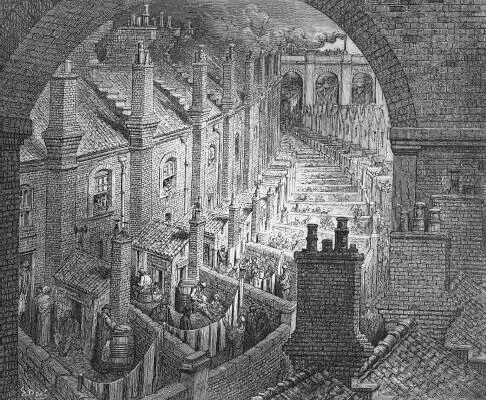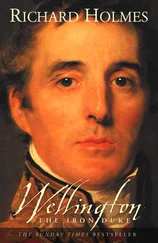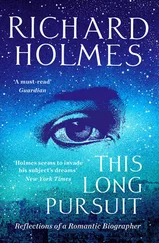For the next decade Mayhew produced hundreds of vivid, detailed reports of life in the backstreets and the rookeries, and especially on the marginal trades and skills that sustained the poorest men and women – and not least the children – of the capital. Among his celebrated and scandalous subjects were street vendors, costermongers, milkmaids, ratcatchers, mudlarks, crossing sweepers, fire eaters, prostitutes, pickpockets and dustmen. Each of his accounts was written with the clipped shape and high polish of a short story. They were buttressed by statistics, glinting with minute visual details, and brought to life with inimitable passages of dialogue.
Often these develop into simple but disturbing sequences of question and answer. ‘I make all kinds of eyes,’ the eye-manufacturer says, ‘both dolls’ eyes and human eyes; birds’ eyes are mostly manufactured in Birmingham, and as you say, sir, bulls’ eyes at the confectioner’s … A great many eyes go abroad with the dolls … The annual increase in dolls goes on at an alarming rate. As you say, sir, the yearly rate of mortality must be very high, to be sure, but still that’s nothing to the rate in which they are brought into the world … I also make human eyes. Here are two cases, in the one I have black and hazel, in the other blue and grey. Here you see are the ladies’ eyes … There’s more sparkle and brilliance about them than the gentlemen’s … There is a lady customer of mine who has been married three years to her husband, and I believe he doesn’t know she has a false eye to this day.’ 1Such material, with its mixture of the mundane and the gothic, its small revelations of human eccentricity and affection, would clearly influence the later and darker novels of Dickens.
When he had amassed about half a million words of material, Mayhew began to edit and reorganise the pieces into the form of his grim masterwork London Labour and the London Poor . Once the work was completed, he cast around for a suitable way to celebrate. It struck him that an airy overview of the great city, in whose backstreets and dark corners he had spent so many years almost buried, would be suitable. So he accepted an invitation to take a flight in one of Charles Green’s balloons.
Officially this was to be one of Green’s frequently-advertised ‘Last Ascents’ from Vauxhall Gardens. For Mayhew, the flight was also to be, in a sense, the culmination and farewell to much of his previous journalism. But it was also a celebration and a release from it. Having seen London from the darkest and most labyrinthine street level, he now wished to sail into the clear air above it. He wanted to see his huge and ‘monstrous’ city at last in the grand perspective, or – as he put it with poignant irony – from ‘an angel’s view’. What’s more, he would write about it for the leading current-affairs weekly in Britain, the Illustrated London News .
In case the ‘angel’ approach seemed rather presumptuous, he began by explaining that he was naturally ‘a coward – constitutionally and habitually timid’. As it did for most of his readers, the idea of flying in a balloon frankly appalled him: ‘I do not hesitate to confess it’. The best he could say was that he was motivated by ‘idle curiosity, as the world calls it’. Having made this apparently modest disclaimer, Mayhew immediately admitted to the most heroic previous adventures:

I had seen the great metropolis under almost every aspect. I had dived into holes and corners hidden from the honest and well-to-do portion of the Cockney community. I had visited Jacob’s Island (the plague-spot) in the height of the cholera … I had sought out the haunts of beggars and thieves … I had seen the world of London below the surface, as it were, and I had a craving to contemplate it from far above it.
Even if balloon flight turned out be more terrible than anything he had previously experienced, he was determined to try it. What he hoped to see from Mr Green’s balloon was a new vision of the city. Supposing it would be something both familiar yet apocalyptic, Mayhew prepared himself to behold
that vast bricken mass of churches and hospitals, banks and prisons, palaces and workhouses, docks and refuges for the destitute, parks and squares, and courts and alleys, which make up London – all blent into one immense black spot – to look down upon the whole as the birds of the air look down upon it, and see it dwindled into a mere rubbish heap, to contemplate from afar that strange conglomeration of vice, avarice, and low cunning, of noble aspirations and humble heroism, and to grasp it in the eye, in all its incongruous integrity, at one single glance – to take, as it were, an angel’s view of that huge town where, perhaps, there is more virtue and more iniquity, more wealth and more want, brought together into one dense focus than in any other part of the earth. 2
One of Mayhew’s most powerful images was of London miniaturised and made safe, like some huge child’s toy. He, the weary and hardbitten observer of the streets, was somehow lifted clear and transformed by his airborne vantage point. The balloon conferred on him a kind of innocence, a kind of grace:
To hear the hubbub of the restless sea of life and emotion below, and hear it, like the ocean in a shell, whispering of the incessant strugglings and chafings of the distant tide – to swing in the air high above all the petty jealousies and heart-burnings, small ambitions and vain parade of ‘polite’ society [– was to] feel, for once, tranquil as a babe in a cot.
All this gave him a strange sensation, something close to a religious experience, a celestial transfiguration. It was as if, he wrote,
you are hardly of the earth, earthy, as Jacob-like, you mount the aerial ladder, and half lose sight of the ‘great commercial world’ beneath, where men are regarded as mere counters to play with, and where to do your neighbour as your neighbour would do you constitutes the first principle in the religion of trade – to feel yourself floating through the endless realms of space, and drinking in the pure thin air of the skies, as you go sailing along almost among the stars, free as ‘the lark at heaven’s gate’, and enjoying, for a brief half hour, at least, a foretaste of that Elysian destiny which is the ultimate hope of all.
Mayhew was a master of tone and phrase. These last sentences start carefully, with an evangelical earnestness, the language of Charles Kingsley and moral uplift, but slowly elide into something more sentimental and populist. Sailing among the stars, singing ‘at heaven’s gate’, dreaming of the Elysian fields, was really a subtle reversion to the imagery of popular Victorian songs and street ballads.
Mayhew was so pleased with this piece that he included an edited version of it in his later book The Criminal Prisons of London (1862). His view of London evidently influenced Gustave Doré, as well as Dickens’s novels Bleak House and Hard Times .
Charles Dickens was strangely intrigued by balloons. He witnessed many launches in Vauxhall Gardens, and wrote about them several times. He knew Charles Green, and observed his aeronautical calm, his skill with a crowd, and his waving of his white top hat, with a professional admiration. Yet his reactions were far more complicated than Mayhew’s.
It is surprising that the great master of human exotica, and the writer who enshrined the English stagecoach in imaginative literature (notably in The Pickwick Papers ), never actually ventured to set foot in a balloon basket himself. There is no record of Dickens ever leaving terra firma , except in his dreams. As a result, unlike Mayhew, all Dickens’s balloon observations are made from the ground. Of course he may simply have had a quite reasonable fear of heights; or there may have been more mysterious influences at work. He may even have regarded balloon flying as immoral – as a sort of suicidal surrender of self-command.
Читать дальше













